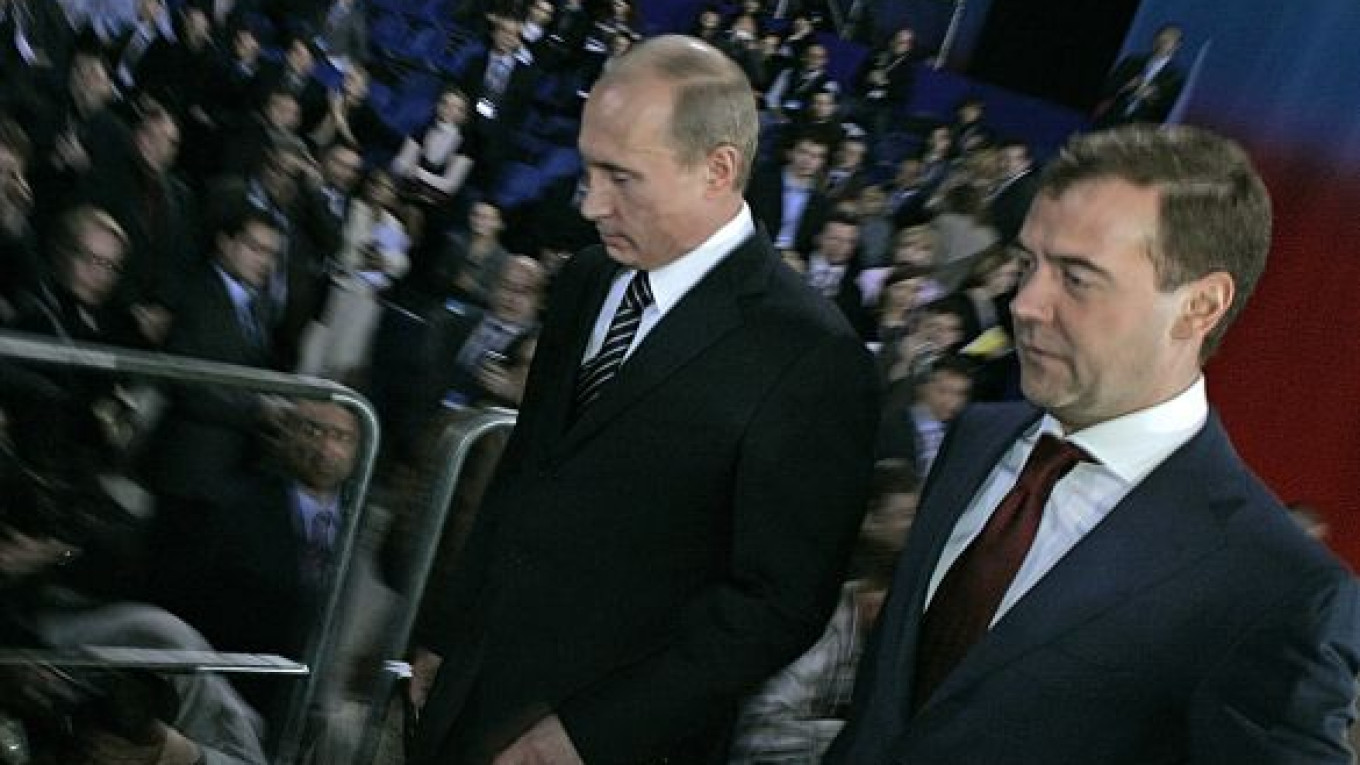President Dmitry Medvedev’s ominous comments on Tuesday in Vladikavkaz that there are outside forces plotting a revolution against Russia sound eerily like the comments made by then-President Vladimir Putin after the Beslan hostage tragedy in 2004. In a televised address to the nation, Putin said there were certain forces — clearly hinting at the United States — that wanted to emasculate Russia as a nuclear power and “seize its juiciest parts.”
Putin accused certain groups — presumably nongovernmental organizations and opposition groups — in December 2007 of “scavenging like jackals at foreign embassies.”
“They’ve learned a lot from Western specialists about provoking revolutions in neighboring republics, and now they want to create incidents here as well,” Putin told cheering youth activists at the Luzhniki stadium. “We won’t let this happen.”
Putin and Medvedev have good company. During Iran’s unsuccessful Green Revolution last year, top Iranian officials blamed the United States and other Western powers for organizing and funding the protesters. Libyan leader Moammar Gadhafi said the same thing after thousands of protesters took to the streets to protest his brutal 40-year tyranny this month.
Unlike Gadhafi and Iranian President Mahmoud Ahmadinejad, Medvedev and Putin’s modus operandi is to only hint at a Western plot against Russia. Perhaps we can take comfort in the fact that Putin and Medvedev are somewhat subtler in expressing their conspiracy theories. Still, there are plenty of pro-Kremlin political analysts who explain in detail what the West is really up to in the North Caucasus — supporting separatist forces both politically? and financially as part of a long-term strategy to split Russia up into six parts. If the West could orchestrate the breakup of the Soviet Union in 1991, the argument goes, why not try it again now on Russia proper?
Unidentified subversive foreign forces have long been a favorite boogeyman for hawkish Russian officials, but what is most noteworthy about Medvedev’s conspiracy comments on Tuesday is how un-Medvedev they sounded.
Perhaps the president is tired of playing the role of good cop in the tandem with Putin. Nice guys finish last, after all. In the end, there is nothing like a fresh conspiracy theory to boost a Russian leader’s popularity among the masses. It always worked for Putin.
A Message from The Moscow Times:
Dear readers,
We are facing unprecedented challenges. Russia's Prosecutor General's Office has designated The Moscow Times as an "undesirable" organization, criminalizing our work and putting our staff at risk of prosecution. This follows our earlier unjust labeling as a "foreign agent."
These actions are direct attempts to silence independent journalism in Russia. The authorities claim our work "discredits the decisions of the Russian leadership." We see things differently: we strive to provide accurate, unbiased reporting on Russia.
We, the journalists of The Moscow Times, refuse to be silenced. But to continue our work, we need your help.
Your support, no matter how small, makes a world of difference. If you can, please support us monthly starting from just $2. It's quick to set up, and every contribution makes a significant impact.
By supporting The Moscow Times, you're defending open, independent journalism in the face of repression. Thank you for standing with us.
Remind me later.


